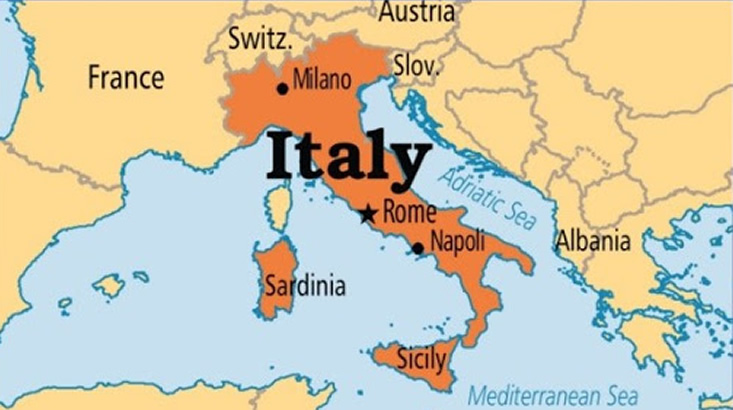
From the mid-19th century through to the 1990s, thousands of people died in mafia violence, from rivals or traitors cast in cement or fed to pigs, to judges, priests and witnesses killed for daring to defy the mob.
There were also the traumatic “Years of Lead” from the end of the 1960s to the 1980s, when armed groups from the extreme left and extreme right brought terror to Italy with bombings and assassinations.
The brutal murder of former prime minister Aldo Moro by the Marxist-Leninist Red Brigades in 1978 is burned into the national psyche, although the largest number of the estimated 400 victims of the period were killed by neo-fascists.
But when this bloody period ended, and after a crackdown on mafias which pushed them into less violent financial crime, the murder rate plummeted.
– Fewer male victims –
Back in 1990, there were 34 murders per one million inhabitants in Italy, compared to 24 in neighbouring France, according to UN figures.
In 2021-22, this had fallen to 5.5 per million in Italy and 11 in France, eight in Germany and 10 in the UK.
In Europe, only Norway and Switzerland have a murder rate lower or equal to Italy’s, while Latvia, the worst, has a rate 6.5 times higher.
“Homicides in general have decreased in the last 25 years, especially the percentage of men” — who previously were the main victims of mafias, noted Raffaella Sette, a sociologist at the University of Bologna.
Just 10 percent of murders each year are now blamed on organised crime.
“The mafias – the Camorra, the ‘Ndrangheta, the Cosa Nostra — have radically changed their way of operating,” said Gianluca Arrighi, a criminal lawyer who writes police novels.
“Today, they operate from a more economic point of view, buying up real estate, entering into companies,” he said.
– Goodwill –
Analysing the causes of violence across different countries is always risky, but Arrighi believes several factors are at play.
While Italy is poorer than its comparable EU neighbours, he says this is not always detrimental to social well-being, saying “goodwill” between people can help compensate for life’s difficulties.
“The higher the conflict in a society, the higher the number of murders, committed by people who are in some state of anger,” Arrighi told AFP.
The murder rate is, however, higher in the south of Italy, the poorest part of the country.
But Stefano Delfini, head of criminal analysis at the government’s department of public security, agrees that “our society is less violent”.
“The social fabric is more resistant, probably because of the presence of family values which mean difficulties are felt in a less harsh way.”
Another factor that drives violence in other countries is alcohol or drug use, particularly in France and the UK.
Italy does not keep data on this, but consumption of alcohol is the lowest in the EU, according to the World Health Organization.
There is a rising awareness in Italy about femicides – killing of a woman or girl by a partner, spouse or family member – with 97 recorded in 2023, out of a total 330 murders.
A lack of harmonised data on femicides makes comparisons with other European countries difficult.
However, statistics compiled by the World Bank for 2021 show a rate of 3.9 murders of women per one million people in Italy, well below the 6.8 in France and 8.0 in Germany.
AFP





